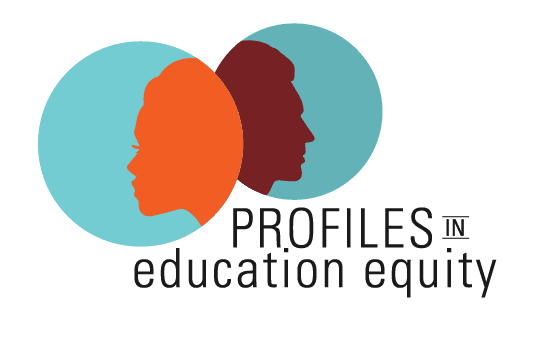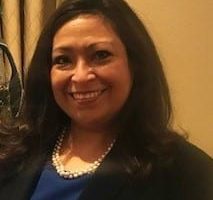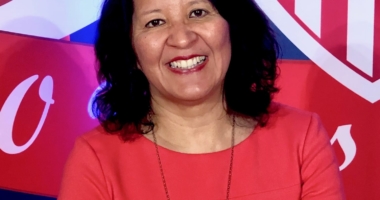Profiles in Education Equity: Nancy Huante-Tzintzun, Stockton Schools Initiative
Nancy Huante-Tzintzun, Ph.D., is a scholar-activist and education equity policy advocate. Currently, she is interim director for Stockton Schools Initiative (SSI) and an Ethnic Studies professor at Sacramento State University.
 Define how you advance education equity in Stockton, California?
Define how you advance education equity in Stockton, California?
The work on strengthening the family-school-university policy and advocacy partnerships is so important. Historically, we inherited a fractured and unequal system of education that for several decades continues to silence and marginalize students and families who are underrepresented.
As a first-generation Chicana who grew up in Stockton, I have experienced firsthand the rejection of services in institutions of education, due to language and immigration status. My experience was then an understanding that getting to college is more than just an educational practice; it’s the result of brokered opportunities. Although my early educational experience left me at times isolated, it also introduced me to programs that supported my desire to attend college and pursue a career in education. My personal lived experience is the foundation for my teaching, research, and policy work.
As I reflect on my role as an education equity advocate, I return to my educational and spiritual mentors who asked that I write or talk through my own schooling experience as an entry point to advance education equity. Sharing my story has allowed me to make connections to families and community members. Using Ethnic Studies as a framework has been key in making sense and co-creating an action plan for closing the achievement and opportunity gap. Using critical qualitative research also informs the way I approach data conversations with families in Stockton.
Share one big success from your work to date and how you measured success.
The biggest success that motivates me is the families’ commitment to educational equity. When families and schools work together, it can be mutually beneficial. Discussions about funding, teacher quality, and curriculum and instruction cannot be done meaningfully without families’ input.
SSI’s Parent and Student Program has allowed Stockton to build on the local, state, and national discourse on closing the opportunity and achievement gap for underrepresented students.
Since the program began, families have organized and engaged with other stakeholders on topics such as school climate and college readiness. During the ed policy workshops, parents and students decided to create an empowerment council to allow families to deep dive into conversations outside of the informational workshops. The council also provided a space to organize around solution-focused activities and/or support for local resolutions.
What do you think are the most pressing education equity issues right now? How can advocates address this challenge?
I recognize there are several pressing education equity issues to take action on. However, it is urgent we rethink the ways in which SSI approaches parent and student engagement. It is important that we have district leaders, teachers, and principals who are culturally responsive to the needs of our most underserved and historically marginalized families, such as families of color. For starters, we need to increase the number of school counselors in K-12, implement restorative justice curriculum, offer multiple language translation services for non-English speaking families, and focus on the needs of low-income, mixed status families and homeless/foster youth.
Families are usually not included in the critical education policy decisions. We can address this challenge by focused review of data on parent and student engagement, and by ensuring that school districts and the state are providing accurate and useable data for families to ask questions and take action on solution-based activities. In the last three years, Stockton Schools Initiative has worked closely with students, parents, and community advocates to understand the local funding formula and developed targeted solutions that will fund students equitably.
What’s your favorite quote? Why?
“Great moral courage is required to voice our dissent against educational policies and practice that betray students from oppressed communities, rendering them disposable and expendable.” –Antonia Darder
For me, education equity is about interrupting the current educational system so that we can create a system that is answerable to students who are historically marginalized. Darder and other critical educators like her invite all of us who are part of the public education system to voice our dissent but also advocate for equitable educational policies and practice. As advocates, we can do that by centering their schooling experience, their lived realities, and theory of change. Also, if we use education policy and data as a tool and as a lever for equity. Using educational data and a community-informed analysis, we approach our local, state, and national educational system to regain power and shift deficit ideology about historically underrepresented students in pre-K through college.



